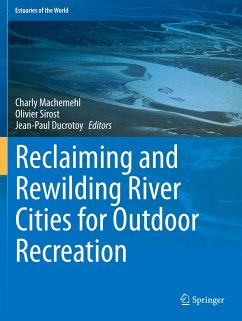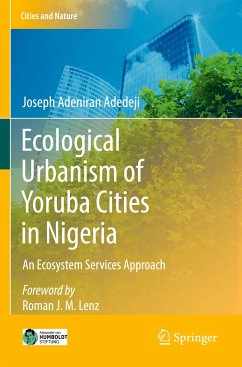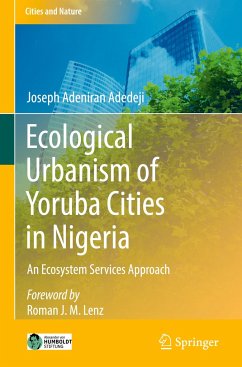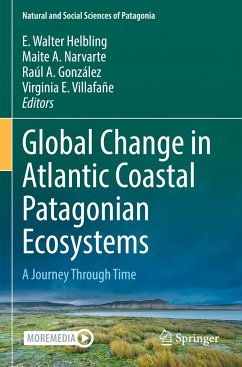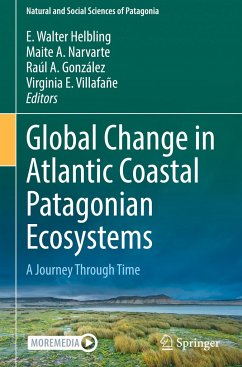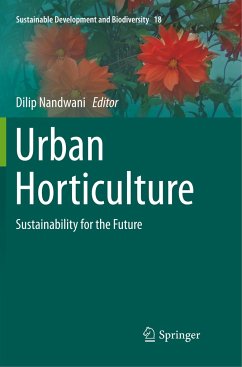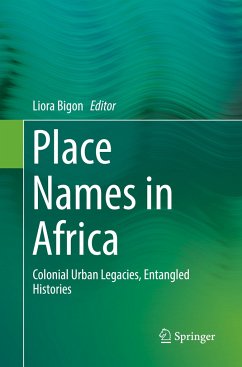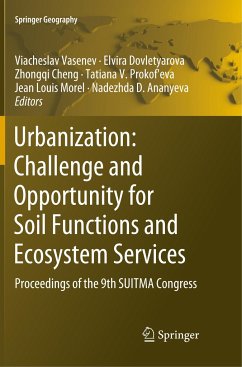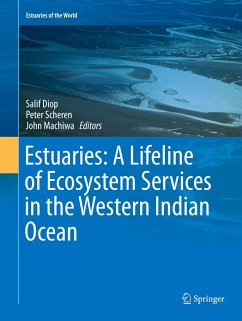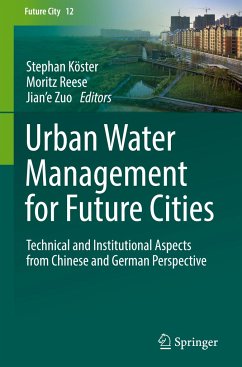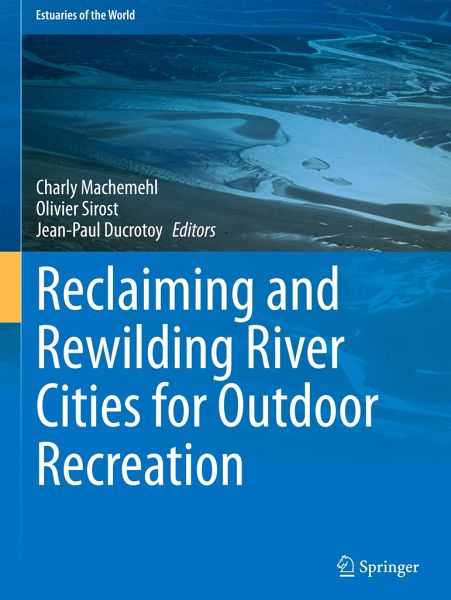
Reclaiming and Rewilding River Cities for Outdoor Recreation

PAYBACK Punkte
38 °P sammeln!
The introduction of sports and recreational facilities into natural environments calls for reflection on their impact on fragile ecosystems. This book is unique in providing an interdisciplinary approach to the ecological restoration of urban and industrial degraded habitats and their use by nearby city-dwellers. For the first time ecologists, sociologists and anthropologists have worked together on particularly sensitive ecosystems such as rivers and estuaries to propose recovery strategies that allow their basic ecological functions to be restored, and which can benefit local populations thr...
The introduction of sports and recreational facilities into natural environments calls for reflection on their impact on fragile ecosystems. This book is unique in providing an interdisciplinary approach to the ecological restoration of urban and industrial degraded habitats and their use by nearby city-dwellers. For the first time ecologists, sociologists and anthropologists have worked together on particularly sensitive ecosystems such as rivers and estuaries to propose recovery strategies that allow their basic ecological functions to be restored, and which can benefit local populations through nature activities.
Nonetheless, the use of natural spaces calls for the building of sustainable towns. This is why this book is distinctive in considering quality of life and well-being as stated objectives of modern river towns. Recently, leisure time has become a part of urban rhythms. In order to favour personal development, an extensive palette of leisure activities is considered by the authors:
bird watchingentertainmentsportsculture
Many aspects including physical and psychological attributes in relation to the contemporary socio-political fabric are dealt with.
While creating areas of freedom, landscaping also induces certain forms of practice and encourages certain social skills. Conversely, the book questions certain types of management based on mass consumption. Don't they, in the end, aim to satisfy needs that are impermanent and shallow?
The image of the contemporary town relies on urban planning projects which, in a global economy, seek to capture the interest of tourists and local populations. How can suitable, diligent planning be successfully combined with both creative design and ecological care? This book demonstrates how biology and sociology can (and should) work in harmony in order to promote an ecosystem approach to environmental management.
Nonetheless, the use of natural spaces calls for the building of sustainable towns. This is why this book is distinctive in considering quality of life and well-being as stated objectives of modern river towns. Recently, leisure time has become a part of urban rhythms. In order to favour personal development, an extensive palette of leisure activities is considered by the authors:
bird watchingentertainmentsportsculture
Many aspects including physical and psychological attributes in relation to the contemporary socio-political fabric are dealt with.
While creating areas of freedom, landscaping also induces certain forms of practice and encourages certain social skills. Conversely, the book questions certain types of management based on mass consumption. Don't they, in the end, aim to satisfy needs that are impermanent and shallow?
The image of the contemporary town relies on urban planning projects which, in a global economy, seek to capture the interest of tourists and local populations. How can suitable, diligent planning be successfully combined with both creative design and ecological care? This book demonstrates how biology and sociology can (and should) work in harmony in order to promote an ecosystem approach to environmental management.



